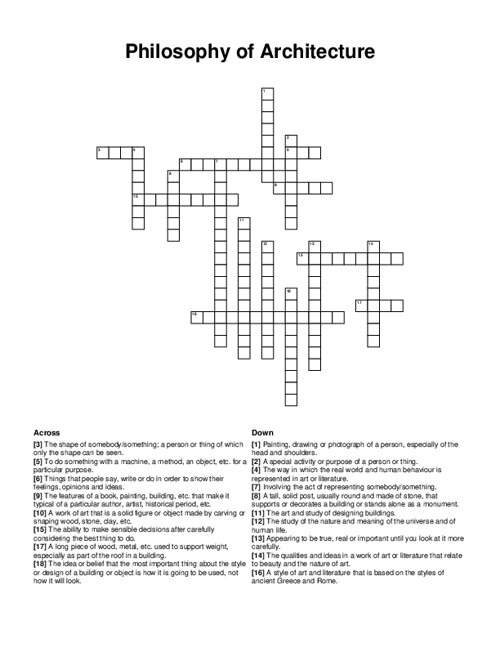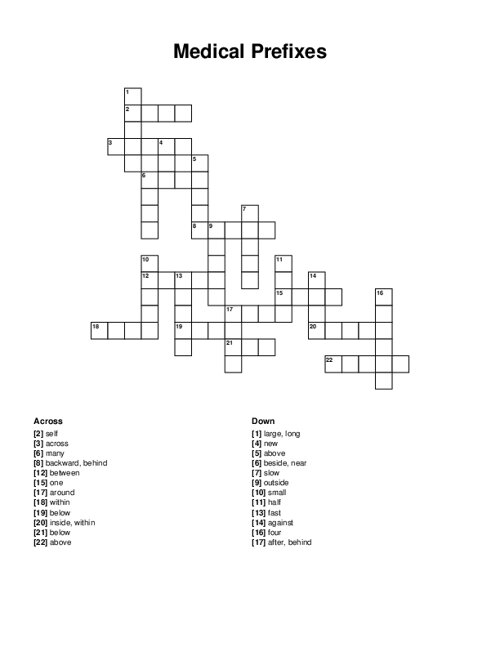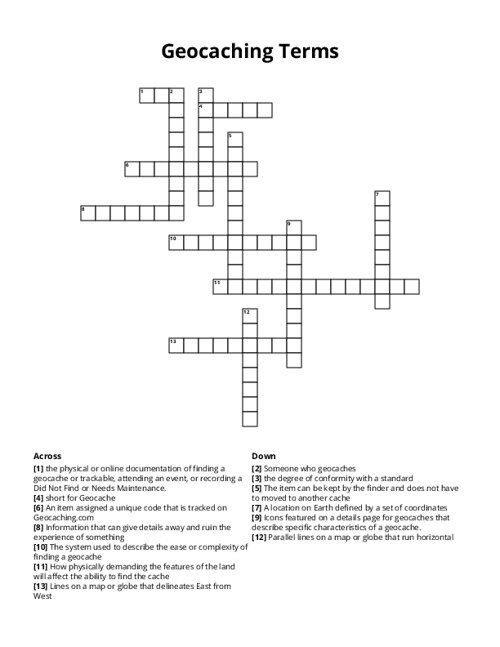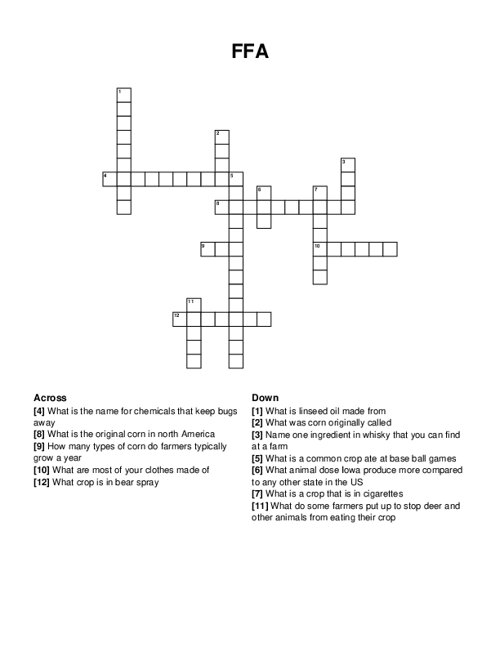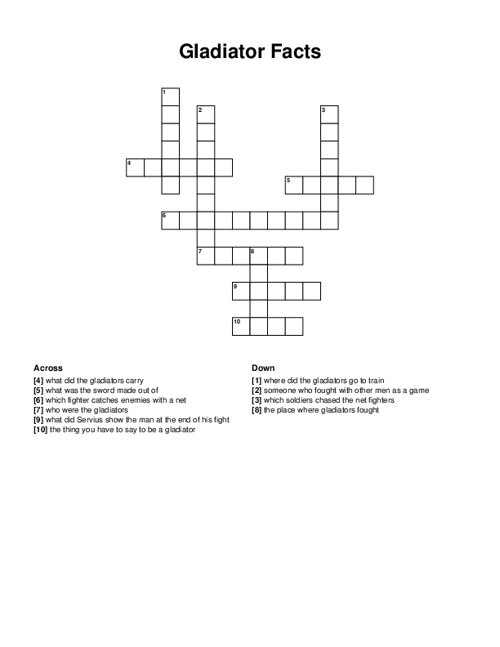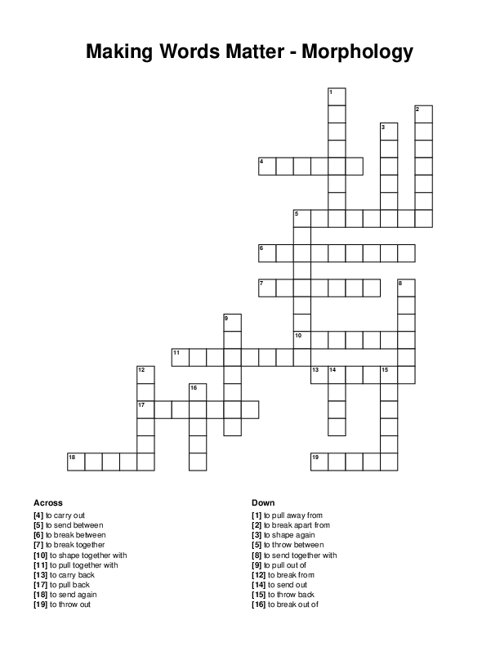Philosophy of Architecture Crossword Puzzle
Download and print this Philosophy of Architecture crossword puzzle.
Related puzzles:
QUESTIONS LIST:
- philosophy : the study of the nature and meaning of the universe and of human life.
- mimesis : the way in which the real world and human behaviour is represented in art or literature.
- functionalism : the idea or belief that the most important thing about the style or design of a building or object is how it is going to be used, not how it will look.
- form : the shape of somebody/something; a person or thing of which only the shape can be seen.
- beam : a long piece of wood, metal, etc. used to support weight, especially as part of the roof in a building.
- judgement : the ability to make sensible decisions after carefully considering the best thing to do.
- style: the features of a book, painting, building, etc. that make it typical of a particular author, artist, historical period, etc.
- aesthetic : the qualities and ideas in a work of art or literature that relate to beauty and the nature of art.
- portrait : painting, drawing or photograph of a person, especially of the head and shoulders.
- expression : things that people say, write or do in order to show their feelings, opinions and ideas.
- sculpture : a work of art that is a solid figure or object made by carving or shaping wood, stone, clay, etc.
- architecture : the art and study of designing buildings.
- classicism : a style of art and literature that is based on the styles of ancient greece and rome.
- column : a tall, solid post, usually round and made of stone, that supports or decorates a building or stands alone as a monument.
- superficial : appearing to be true, real or important until you look at it more carefully.
- function : a special activity or purpose of a person or thing.
- representational : involving the act of representing somebody/something.
- use : to do something with a machine, a method, an object, etc. for a particular purpose.
